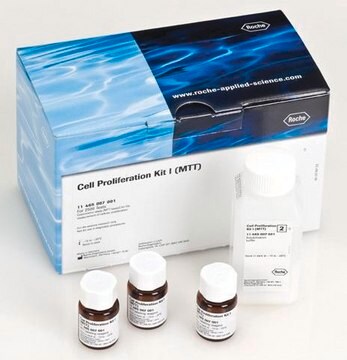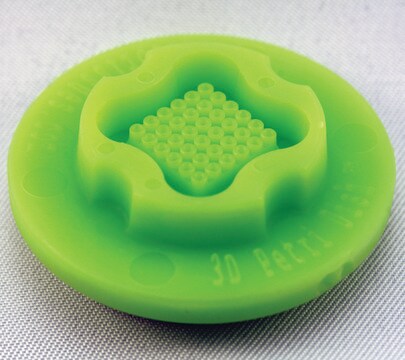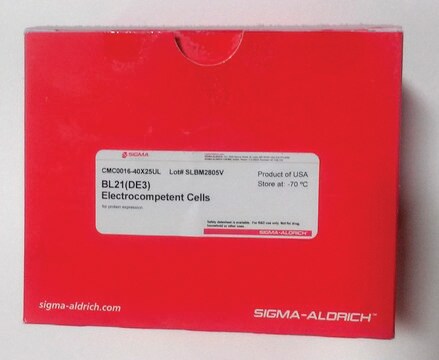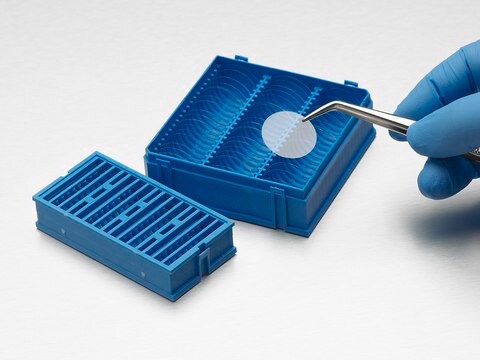CMC0023
CONTROLLER SIG10 Chemically Competent Cells
Escherichia coli, rod shaped
About This Item
Recommended Products
product name
CONTROLLER SIG10 Chemically Competent Cells, for controlled protein expression
biological source
Escherichia coli
grade
for molecular biology
growth mode
adherent or suspension
morphology
rod shaped
technique(s)
microbiological culture: suitable
cell transformation
competent cell type: chemically competent
transformation efficiency: >1 × 109 cfu/μg
shipped in
dry ice
storage temp.
−70°C
General description
They are ideal for cloning and propagation of plasmid clones. They give high yield and high quality plasmid DNA due to the endA1 mutation.
Genotype
mcrA Δ(mrr-hsdRMS-mcrBC) endA1 recA1 Φ80dlacZΔM15 ΔlacX74 araD139 Δ (ara,leu)7697 galU galK rpsL (StrR) nupG λ- tonA Mini-F lacIq1 (GentR)
Features and Benefits
- Reduce leaky expression: The LacI repressor protein binds to the lacO operator to block transcription of downstream genes. In the absence of an induction agent such as lactose sugar or IPTG, target protein expression from the adjacent promoter will be greatly reduced.
- High protein yields: Both 10G and BL21(DE3)-based strains are noted for their ability to express high levels of protein. For expression from a T7 promoter please select the BL21(DE3) strain.
- Terrific efficiency: The simple, reliable heat-shock procedure for chemical transformation gives excellent results from small amounts of plasmid DNA.
Components
- CONTROLLER SIG10 chemically competent cells
- pUC 19 transformation control DNA
- recovery medium for expression
related product
Storage Class Code
10 - Combustible liquids
Certificates of Analysis (COA)
Search for Certificates of Analysis (COA) by entering the products Lot/Batch Number. Lot and Batch Numbers can be found on a product’s label following the words ‘Lot’ or ‘Batch’.
Already Own This Product?
Find documentation for the products that you have recently purchased in the Document Library.
Articles
Bacterial transformation is a process of horizontal gene transfer by which some bacteria take up foreign genetic material (naked DNA) from the environment. Bacteria that can take up free, extracellular genetic material are known as competent cells.
Our team of scientists has experience in all areas of research including Life Science, Material Science, Chemical Synthesis, Chromatography, Analytical and many others.
Contact Technical Service





